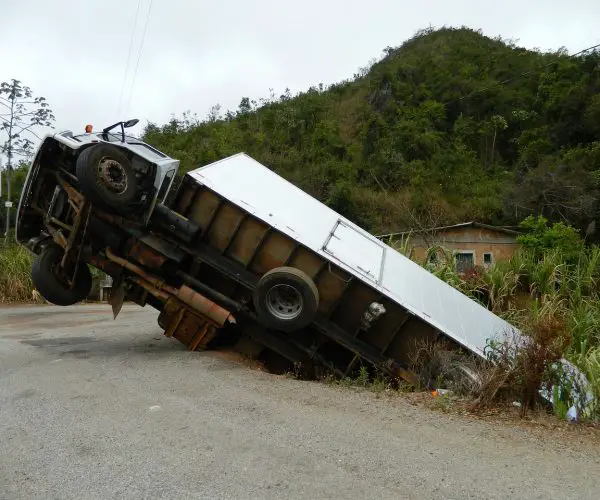Essential Steps for Safeguarding Lives in Truck Accidents
Truck accidents are distressing incidents that require swift and effective emergency response and rescue operations. The specialized nature of these accidents demands the expertise of first responders who navigate complex scenarios to ensure the safety and well-being of all individuals involved.
In this article, we explore the critical role of first responders, the extrication techniques employed to rescue trapped occupants, the challenges posed by hazardous materials and spills, and the essential medical response and triage procedures. By understanding the intricacies of emergency response in truck accidents, we can better equip ourselves to handle these challenging situations and save lives.
If you’ve experienced a truck accident, don’t hesitate to reach out to a skilled truck accident attorney who can fight for the compensation you deserve.

First Responders’ Role in Truck Accident Scenarios
When a truck accident occurs, the immediate response of first responders is crucial to stabilizing the scene and providing aid to the injured. Emergency medical services (EMS), firefighters, and law enforcement personnel are typically the first on the scene. They work collaboratively to assess the situation, secure the area, and administer medical attention to those in need. Statistics show that accidents involving motorized land vehicles on roadways are the leading cause of work-related deaths. There were 1,253 worker deaths in 2021, and 25,830 people were injured in 2020.
The primary focus is on ensuring the safety of all individuals involved while coordinating efforts to extricate trapped occupants and mitigate further risks. The expertise and training of these first responders are instrumental in managing the chaotic aftermath of a truck accident, providing critical medical care, and saving lives. Their swift actions and ability to make split-second decisions under pressure are paramount in maximizing the chances of survival and minimizing the long-term impact of injuries.
Extrication Techniques for Trapped Occupants
Truck accidents often result in entrapment, where occupants may find themselves trapped inside the wreckage due to the significant impact or structural damage. Skilled rescue teams employ specialized extrication techniques to safely remove trapped individuals from the vehicle. These techniques involve the use of hydraulic tools, such as the “jaws of life,” to cut through mangled metal and create access points for extraction.
Precision, coordination, and a deep understanding of vehicle structures are required to extricate occupants while minimizing the risk of further injuries. Timely and efficient extrication is vital, as it can significantly impact the chances of survival and minimize the potential for long-term complications.
Trained rescuers work diligently to assess the situation, stabilize the vehicle, and carefully navigate the extrication process. They prioritize the safety and well-being of the trapped occupants, employing techniques such as door removal, roof removal, or dashboard displacement to create space for extraction.
Dealing with Hazardous Materials and Spills
In certain truck accidents, the transportation of hazardous materials can pose additional risks and challenges for first responders. Spills of toxic chemicals, fuel, or other hazardous substances require immediate attention to prevent further harm to individuals and the environment.
First responders must quickly assess the nature of the spill, identify the appropriate containment measures, and implement protocols to mitigate the impact. Specialized hazmat teams may be called upon to handle and neutralize hazardous materials safely. Their expertise in handling these substances and their knowledge of containment procedures are crucial in safeguarding the well-being of responders and preventing the spread of contaminants.
Medical Response and Triage
Truck accidents often result in a range of injuries, from minor to life-threatening. The medical response and triage process play a vital role in prioritizing treatment based on the severity of injuries and available resources.
Medical teams assess and categorize patients using triage systems, ensuring that critical cases receive immediate attention while providing care to those with less severe injuries. In truck accidents involving multiple casualties, establishing temporary medical treatment areas allows for efficient triage and distribution of resources.
The coordination between medical personnel and first responders is essential in ensuring that injured individuals receive timely and appropriate medical interventions, increasing their chances of survival and recovery.
Minimizing the Impact of Truck Accidents
Promoting trucker health and emergency response and rescue operations in truck accidents are critical for saving lives and minimizing the impact of these distressing incidents. The swift and coordinated efforts of first responders, employing extrication techniques, managing hazardous materials, and providing an effective medical response, are key components in mitigating the devastating consequences of truck accidents.
Continuous training, adequate resources, and an understanding of the complexities involved are essential to improving emergency response and rescue capabilities. By prioritizing the safety and well-being of all individuals involved, we can work towards a more efficient and effective emergency response system, ultimately ensuring the preservation of lives in truck accidents.
The complexities involved in truck accident cases also require legal expertise, so it is important to consider contacting an attorney to navigate through the legal proceedings.